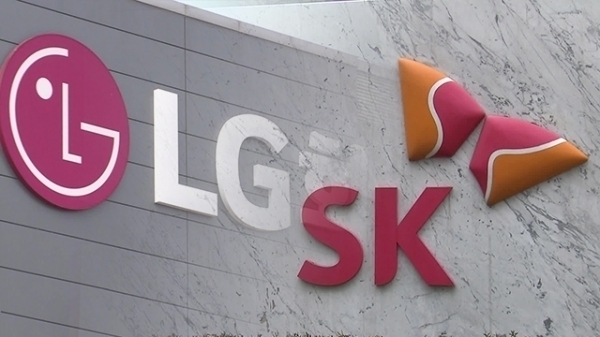Almost three years have passed since LG Energy Solution sued SK Innovation through the US International Trade Commission and the US District Court of Delaware for allegedly stealing its electric vehicle battery trade secrets.
As the legal wrangling nears a conclusion, the USITC is set to deliver its final ruling on Feb. 10.
From South Korean Prime Minister Chung Se-kyun to congressmen in Georgia and Tennessee, pressure is mounting on both parties to patch things up, but a huge discrepancy in a settlement amount appears to be blocking the reconciliation.
Following are the four ways the battery lawsuit could eventually pan out.
Should LG win
In February last year, the USITC handed down a preliminary ruling in favor of LG Energy Solution, ruling by default that SK Innovation had infringed on LG’s electric vehicle battery trade secrets.
Industry sources say the USITC is likely to uphold the default judgement, as the USITC has sustained the preliminary ruling in the final verdicts of all trade secret cases from 1996 to 2019.
A default judgment occurs when a court rules in favor of the plaintiff because of the defendant’s failure to fulfill its responsibilities. In this case, the USITC said SK Innovation had intentionally impaired the investigation by deleting, moving, hiding and altering evidence.
If the default judgement is upheld, SK Innovation will have to halt shipments of batteries, parts and manufacturing equipment to the US. Its operation of two battery plants, currently under construction in Georgia, will face a significant setback.
If SK Innovation fails to supply batteries to automaker clients due to the shutdown of the two plants, the company will have to pay compensation for a breach of contract. SK Innovation’s order backlog in the US is estimated to be 20 trillion won ($17.9 billion).
Remand or veto The USITC could order a remand of the default judgment, which is what SK Innovation is likely hoping.
According to SK Innovation, the USITC’s default judgement was made due to the company’s “document deletion activity,” not from a judgment on whether or not there was a misappropriation of trade secrets.
“SK Innovation sees that a remand scenario is most likely,” a company official said.
SK Innovation hopes that a remand order could lead to a reinvestigation of the case on its very core issue -- whether or not it actually stole LG’s trade secrets.
The matter deserves fair attention, as SK Innovation’s defeat would have an impact on American public interests, including hundreds of lost jobs in Georgia, the company argues.
In principle, the US president has the authority to veto an ITC ruling, although it is seen as highly unlikely. No US president has ever exercised that right in a trade secret case.
Civil suit
If the two rivals fail to reach a settlement even after the final ruling from the USITC, they will have to take the matter to a civil suit at the US District Court of Delaware.
If LG Energy Solution wins the civil case, it can charge compensation for damages and attorney’s fees to SK Innovation. The US federal district court can order the defendant to pay compensation for actual damages plus “punitive damages” which can be twice the amount of actual damages.
In a conference call held Wednesday, an LG Energy Solution official cited a case involving Motorola Solutions. In January last year, the Northern District Court of Illinois ordered Hytera Communications to compensate Motorola $345.8 million in actual damages and $418.8 million in punitive damages for stealing land-mobile-radio trade secrets and infringing upon copyrights owned by Motorola.
The US federal district court calculates compensation based on different factors, including the amount of unfair profits generated by the defendant and the future value of the trade secret.
From 2017 to 2019, SK Innovation won battery supply deals worth 40 trillion won to 50 trillion won globally.
Dramatic reconciliation Of course, the two parties can settle anytime.
Both parties have said they are open for talks, but the sticking point is the amount of a potential settlement.
If the USITC rules in favor of LG Energy Solution’s win, SK Innovation is expected to come up with a settlement offer to prevent a civil suit.
On Thursday, SK Innovation’s battery business chief Ji Dong-sup said “the company will do its best to resolve this smoothly through a cooperative and constructive dialogue.”
On the same day, LG Energy Solution hit back at Ji, calling for action rather than words.
“SK Innovation must suggest a proposition worth negotiating,” an LG Energy Solution official said.
In 2017, LG Energy Solution filed a trade secret lawsuit against China’s ATL with the USITC for stealing three US patents covering a LG-developed technology related to battery components called separators. Both parties reached a settlement just before the final ruling, after ATL offered a 3 percent royalty on revenue generated using LG’s separator patents.
“If both parties fail to narrow their differences, a negotiation will have to start all over again from square one after the final ruling on Feb. 10,” an industry official said.
By Kim Byung-wook (
kbw@heraldcorp.com)








